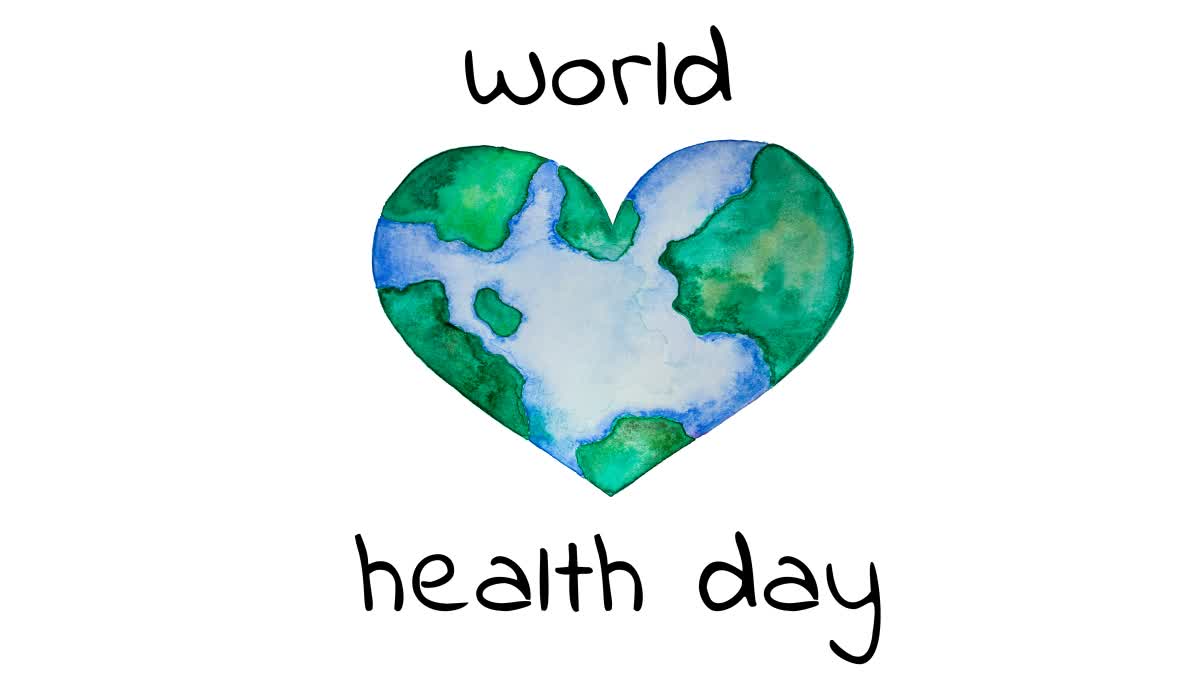Hyderabad: World Health Day, observed on April 7 each year across the globe, aims to create awareness of a specific health theme to highlight a priority area of concern for the World Health Organization (WHO).
Theme 2024
The theme for World Health Day 2024 is 'My health, my right’. This year's theme was chosen to champion the right of everyone, everywhere to have access to quality health services, education, and information, as well as safe drinking water, clean air, good nutrition, quality housing, decent working and environmental conditions, and freedom from discrimination.
History of World Health Day
In December 1945, Brazil and China proposed the formation of an all-encompassing and independent international health organisation. Subsequently, in July 1946, in New York, the proposal was approved and on April 7, 1948, 61 countries came together to sign the agreement for the formation of this NGO.
The day was first observed on July 22 in the year 1949, but the date was later changed to April 7, the same date when WHO was officially established. Therefore, in 1950, the day was officially observed for the first time. "The objective of World Health Day is to raise global awareness of a specific health theme to highlight a priority area of concern for the World Health Organization (WHO)," states WHO.
WHO's Message
"Realising the right to health for all means creating conditions where everyone, everywhere can access high-quality health facilities, services and goods that prioritize people's needs, understanding and dignity. It also means a full set of rights that enable people to live healthily, such as education, safe water and food, nutritious food, adequate housing, good working and environmental conditions and information—or the underlying determinants of health," said Saima Wazed, Regional Director, WHO South-East Asia Region.
Nearly 40 per cent of the Region’s people lack coverage of essential health services. Investment in health by national governments, which is the foundation of advancing the right to health, is unacceptably low, which has resulted in high out-of-pocket expenditures. The proportion of households experiencing financial hardship in accessing basic health care has been rising.
The probability of death between the ages of 30 and 70 years from four major diseases - cardiovascular diseases, cancer, diabetes and chronic respiratory diseases - is still unacceptably high at 21.6 per cent.
The poorest and groups with vulnerabilities face the greatest barriers in accessing needed healthcare, often with catastrophic consequences for their health and wellbeing. Poor quality care accounts for more diseases and deaths than lack of access to care.
Violence against women and girls — a violation of their human rights and a priority public health issue — remains pervasive. More than one in every three women in the Region have experienced intimate partner violence at least once in their lifetime, with rural and uneducated women and those from the poorest households facing a significantly higher risk, she said.
Too many still face stigma related certain health conditions, such as TB, HIV/AIDS, disability or mental ill health. They also face discrimination in the health system based on their gender, class, ethnicity, religion, sexual orientation or other characteristics, the Regional Director added.



